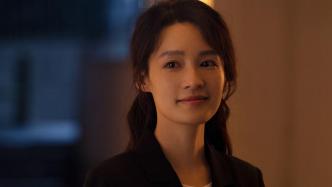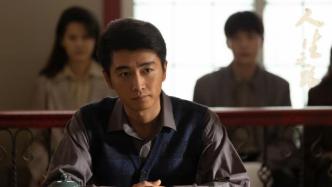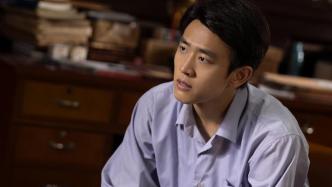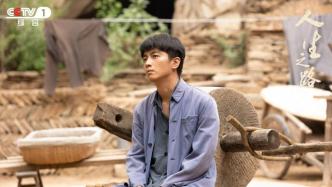
Recently, the TV series "The Road to Life" produced by Shanghai was popular on CCTV. Part of the play is based on Lu Yao's novella "Life". It tells the story of a group of aspiring young people represented by Gao Jialin and Liu Qiaozhen from the 1980s to the beginning of the 21st century. The story of Shanghai vividly explains that "happiness comes from hard work". Gao Jialin, a young man living in northern Shaanxi, worked hard to change his destiny. After experiencing the vicissitudes of the world and the successive tests of fate, he wrote the extraordinary life stories of ordinary people in the tide of the times. The play once again chooses "Gao Jialin's problem" as the starting point of the narrative, and carries out classic reconstruction by continuing to write the full biography of the protagonist's life, responding to the questions of the times based on the Chinese context.
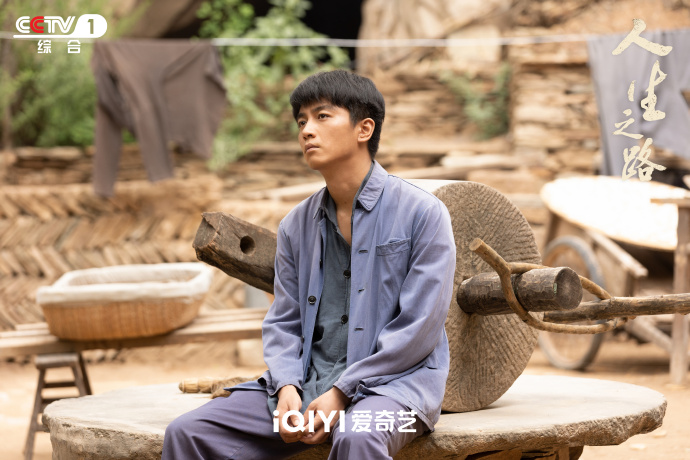
"The Road to Life" Stills, Chen Xiao as Gao Jialin
The play allows a new generation of audiences to see the current confusion in the life choices of "Gao Jialin", and witness how young people with dreams in that era were unwilling to resign themselves to fate and how they fought against fate. But the difficulty in reconstructing classics is that the new work must not only fully respect the spiritual core of the original work, but also make an adaptation that conforms to the characteristics of the times. The creation of "The Road of Life" abandoned the relatively conservative classic re-engraving method, and took the novel's creation method intertwined with realism and romanticism as the narrative keynote, extending the story timeline. The first half of the series tells the story of Gao Jialin, pulled by the opposing forces of ups and downs in life and lofty ideals, repeatedly pulled himself away from the loess land, and had no choice but to return to the origin. The emergence of this situation is not only due to the relatively slow speed of local economic development, which makes it difficult to provide diverse and sufficient growth paths for young people, but also because of the intertwined interpersonal interaction in Gaojia Village, which places a heavy burden on him. relation. After Gao Jialin was admitted to the college entrance examination, he was replaced by Gao Shuangxing, the son of the village party secretary, and his love with Qiaozhen became a rumor in the village. All these were the shackles he tried to break through in life. But Gao Jialin has never given up on the road of struggle, determined to pursue the ideal of life in the vast world. The second half of the episode responds to Gao Jialin’s confusion in line with the context of the times. He finds a way out in Shanghai with unremitting struggle, takes advantage of the development of the times to achieve great changes in life, and completes the transformation from ordinary literature lover to literary lover. Editor's growth path. After he succeeded in his career, he gave back to his hometown, making the connection between the destiny of the individual and the country more and more clearly presented as a positive force. What used to be "Gao Jialin's Dilemma" has finally turned into "Gao Jialin's Answer" at this moment, that is, the parent's experience that can guide the life of young people.
More than forty years ago, the author of the original work could only leave an open ending for Gao Jialin because he was unable to break through the fog of the times to explore the great changes in the future. Today, the TV series "Road of Life" re-examines the life doubts of the parents based on the present, uses known experience to respond to Gao Jialin's problem, and derives an answer that conforms to the inevitability of the times. The retelling of classics does not mean the unadorned re-enactment and reproduction of the original work, but a new interpretation of the social issues that have attracted public attention in the original work based on the context of the times.
The choice of Shanghai for the play not only provided a reasonable environment for Gao Jialin's life changes, but also empowered the era of classic works. The great urban changes in Shanghai provide the basic coefficients that must be considered in answering the "Gao Jialin Dilemma". Affected by this key coefficient, the life path of young people is generally in a state of continuous upward trend. In "The Road to Life", Qiaozhen, who came to Shanghai, regards individual development as a new driving force in life, and through self-struggle and good opportunities, she becomes a trendsetter of the times, and finally finds a spiritual resonance with Gao Jialin. Liu Qiaozhen, Gao Shuangxing, Ma Shuan and other characters are not only Gao Jialin's fellow travelers in the era, but also formed a variety of mirror images of his life choices.
The outlet provided by the TV series for "Gao Jialin" has a certain romantic and ideal atmosphere. But the possibility of this great change in life is precisely their expectation and hope for the times. The play also designed the story line of Gao Jialin being replaced in the college entrance examination, correcting his stolen life. After Gao Shuangxing confessed the truth, she engaged in various kinds of physical labor, and finally chose to obtain the teacher's qualification and returned to her hometown in northern Shaanxi to teach. Returning to the origin of life, Gao Shuangxing will continue to solve the "Gao Jialin problem" in his hometown. Although the lives of the two of them are like positive and negative mirror images of the times, unremitting struggle is the common cultural gene in their blood. The words "not the end" in the last chapter of the novel "Life" indicate that there are still many possibilities for Gao Jialin's future, and Gao Shuangxing's life choices also add a footnote "not the end" to the TV series "The Road to Life".
The classic retelling method full of idealism can not only make the audience understand the past, absorb the experience and life strength of their parents, but also make the original works acquire the charm of the new era and guide the public to the future. This is also the humanistic mind and modern vision that literary and artistic creation needs to have in the midst of major changes unseen in a century.
(The author is an assistant researcher at the Institute of Literature of the Shanghai Academy of Social Sciences. This article was originally published in the 15th edition of Guangming Daily on April 19, 2023. road")
